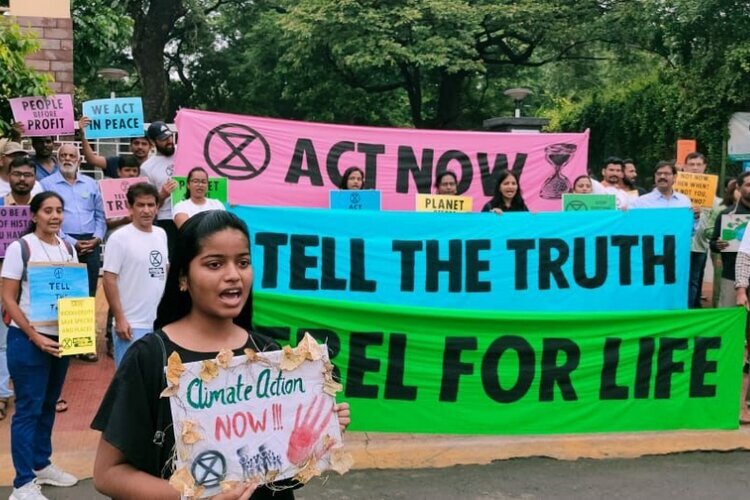
Beyond the Noise: The Perils of Pseudo-Activism and the Urgent Need for Real Climate Action
The environmental movement has seen a surge in recent years, with individuals and organizations worldwide rallying to address the pressing issues of pollution and climate change. While this increased awareness is undoubtedly positive, it is essential to distinguish between genuine activism and what I term "pseudo-activism." Pseudo-activists often engage in symbolic acts or make grandiose claims without addressing the root causes of environmental problems.
I have personally experienced the limitations of such superficial activism. As an environmentalist, I initiated the "Satyagraha against Pollution and Climate Change" movement. The primary goal of this initiative was to foster a deeper understanding of climate change among the public and cultivate a sense of personal responsibility. Rather than focusing on blame and accusations, we aimed to empower individuals to take meaningful action in their own lives.
The consequences of climate change are becoming increasingly evident, with devastating impacts on human health, economies, and ecosystems worldwide. In India alone, the situation is dire. According to recent studies, over 800,000 people, including 150,000 children, have died due to air pollution since 2021. Moreover, climate change is causing an annual economic loss of ₹2 trillion, and forcing the nation to lose approximately 50 working days each year due to extreme weather events. The agricultural sector is particularly vulnerable, with over 5 million hectares of farmland rendered unproductive annually.
While these statistics paint a grim picture, the response from some sections of the environmental movement has been less than adequate. Pseudo-activism, with its focus on symbolic gestures and blame-game politics, often diverts attention from the urgent need for systemic change. By fixating on individual corporations or industries as the sole villains, pseudo-activists overlook the complex interplay of factors driving climate change, such as urbanization, population growth, and consumption patterns.
The true test of environmental activism lies in its ability to effect lasting change. Genuine activists focus on building sustainable communities, promoting clean energy solutions, and advocating for policies that address the root causes of environmental problems. They understand that climate change is a global crisis that requires a coordinated response from governments, businesses, and individuals alike.
The Dangers of Pseudo-Activism
Pseudo-activism can have several detrimental effects:
• Distraction from systemic issues: By focusing on symbolic actions, pseudo-activists may divert attention from the underlying causes of environmental problems.
• Polarization: The tendency to demonize industries or governments can create a polarized climate, hindering cooperation and collaboration.
• Erosion of trust: When the public perceives environmental activism as being primarily about grandstanding or virtue signaling, it can erode trust in the movement.
• Delayed action: By focusing on short-term gains, pseudo-activists may delay the implementation of long-term solutions.
A Path Forward
To address the climate crisis effectively, we must move beyond pseudo-activism and focus on evidence-based solutions. This requires:
• Promoting scientific literacy: Ensuring that the public has access to accurate information about climate change.
• Supporting sustainable businesses: Encouraging companies to adopt environmentally friendly practices.
• Investing in renewable energy: Accelerating the transition to clean energy sources.
• Promoting sustainable agriculture: Supporting farming practices that protect the environment.
• Engaging in policy dialogue: Working with policymakers to develop effective climate policies.
• Fostering individual responsibility: Empowering individuals to make sustainable choices in their daily lives.
By focusing on these areas, we can build a more sustainable future for generations to come. It is imperative that we move beyond rhetoric and take concrete steps to address the climate crisis. The survival of our planet depends on it.
In conclusion, the "Satyagraha against Pollution and Climate Change" movement highlights the importance of personal responsibility in addressing environmental challenges. By shifting the focus from blame to solutions, we can create a more positive and effective approach to environmental activism. It is through collective action, informed by science and guided by a sense of shared responsibility, that we can hope to overcome the climate crisis.